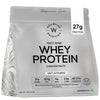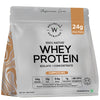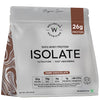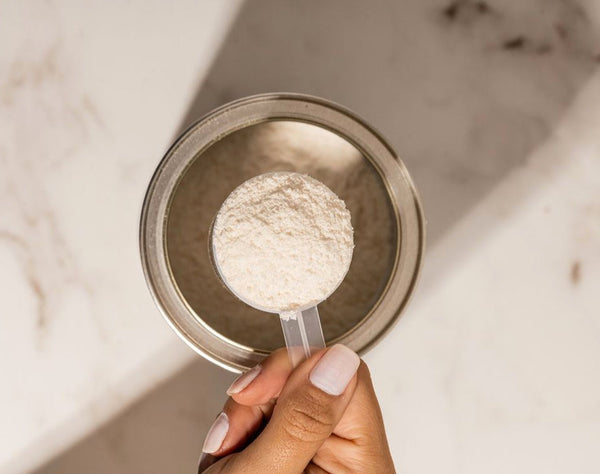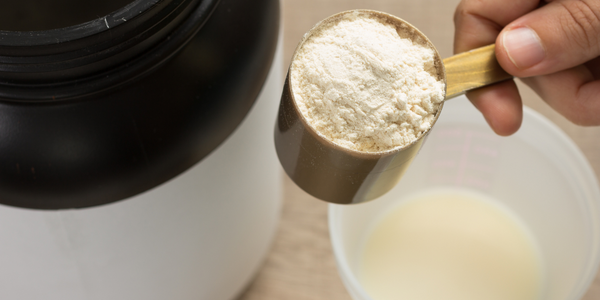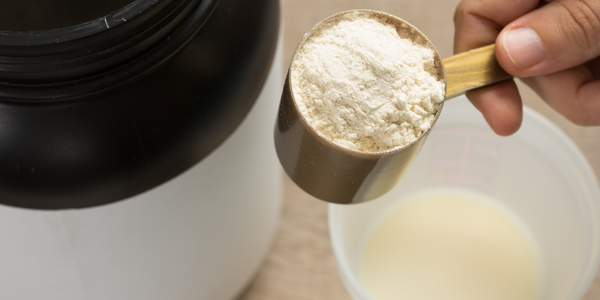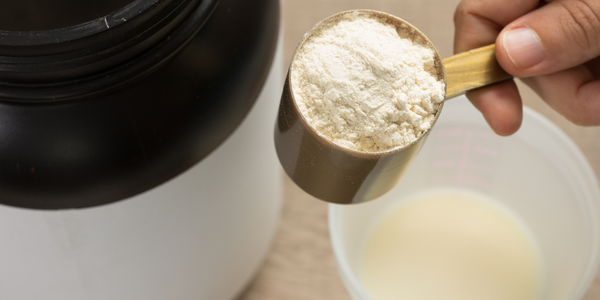Imagine this: You’ve finally decided to take your fitness goals seriously. You walk into a supplement store, ready to fuel your muscle growth, but then—bam! You’re hit with a wall of choices. Among the many tubs of powders, two names stand out—Mass Gainer and Whey Protein. Which one should you pick? Which will give you the best results?
If you’ve ever found yourself caught in this dilemma, you’re not alone. Many fitness enthusiasts, whether beginners or seasoned athletes struggle with choosing the right supplement. The answer isn’t as simple as picking the one that promises the most muscle growth—it depends on your body type, goals, and dietary habits. So, let’s break it down and uncover the truth about these two popular supplements.
Understanding Whey Protein
Whey protein is a fast-digesting protein derived from milk, known for its high biological value and rich amino acid profile. It primarily supports muscle repair, recovery, and lean muscle growth. (NIH)
Types of Whey Protein:
-
Whey Protein Concentrate (WPC): Contains 29-89% protein, with small amounts of fat and carbohydrates. It retains more beneficial nutrients like immunoglobulins and lactoferrin.
-
Whey Protein Isolate (WPI): Highly refined, with protein content exceeding 90%, minimal fat, and almost no lactose, making it ideal for those who are lactose-intolerant.
-
Whey Protein Hydrolysate (WPH): Pre-digested for faster absorption, making it the best choice for post-workout recovery.
Benefits of Whey Protein:
-
Rapid absorption: Helps muscles recover quickly after workouts.
-
High in BCAAs (Branched-Chain Amino Acids): Leucine, isoleucine, and valine support muscle repair and growth.
-
Promotes lean muscle mass: Ideal for those looking to maintain a toned physique without gaining excess fat.
-
Versatile usage: Can be consumed post-workout or between meals for a protein boost.
Understanding Mass Gainers
A mass gainer is a high-calorie supplement designed for individuals who struggle to gain weight. It contains a blend of protein, carbohydrates, and fats, along with added vitamins and minerals. (NIH)
Key Components of Mass Gainers:
-
Protein Blend: Often includes whey protein, casein, or plant-based proteins.
-
Carbohydrates: Provides a high-carb content (often 60-75%) to fuel workouts and replenish glycogen stores.
-
Healthy Fats: Includes MCTs (medium-chain triglycerides) and omega-3 fatty acids to support overall health.
-
Added Nutrients: Some contain creatine, digestive enzymes, and amino acids for enhanced performance and digestion.
Benefits of Mass Gainers:
-
High-calorie content: Helps individuals with a fast metabolism gain weight efficiently.
-
Supports muscle growth: Provides a calorie surplus necessary for building muscle.
-
Contains essential nutrients: Ensures overall health and energy levels remain high.
-
Convenient for busy lifestyles: Acts as a meal replacement when it’s hard to consume whole foods.
Key Differences Between Mass Gainers and Whey Protein
|
Feature |
Mass Gainer |
Whey Protein |
|
Caloric Content |
High (500-1,200+ kcal/serving) |
Low (100-150 kcal/serving) |
|
Macronutrient Ratio |
High in carbs and fats |
Primarily protein |
|
Purpose |
Weight & muscle gain |
Lean muscle maintenance & recovery |
|
Absorption Rate |
Slower |
Fast |
|
Usage Timing |
Between meals or post-workout |
Post-workout |
|
Best For |
Hard gainers |
Athletes, bodybuilders, and those on a lean diet |
Which One Should You Choose?
Choose Mass Gainer If:
-
You struggle to gain weight due to a fast metabolism.
-
You require high-calorie intake to support intense training.
-
You need a convenient meal replacement option.
-
You’re looking to bulk up and increase muscle mass significantly.
Choose Whey Protein If:
-
You want to build lean muscle without excessive calorie intake.
-
You need a quick and efficient protein source post-workout.
-
You’re on a weight-loss journey and need to preserve muscle mass.
-
You prefer a supplement with minimal carbs and fats.
Quality Matters: What to Look For in Your Supplement
When choosing a whey protein or mass gainer, consider the following:
-
Minimal Artificial Additives: Avoid excessive sugars, artificial flavors, and fillers.
-
Protein Source: Look for high-quality protein sources like whey isolate or grass-fed whey.
-
Carbohydrate Quality: Opt for complex carbs (e.g., oats, sweet potato) rather than simple sugars.
-
Digestive Support: If you have digestion issues, consider supplements with added enzymes.
Potential Side Effects
While both supplements are generally safe, they can have side effects:
-
Mass Gainers: Overconsumption can lead to fat gain, bloating, and digestive discomfort.
-
Whey Protein: Some individuals may experience bloating or lactose intolerance. Opt for whey isolate if you have digestive sensitivities.
Final Thoughts
Both mass gainers and whey protein serve distinct purposes in fitness nutrition. If you’re looking to gain size and mass, a mass gainer is your best bet. On the other hand, if your focus is muscle repair and lean gains, whey protein is the superior choice. Ultimately, selecting the right supplement comes down to your fitness goals, metabolism, and overall diet.








